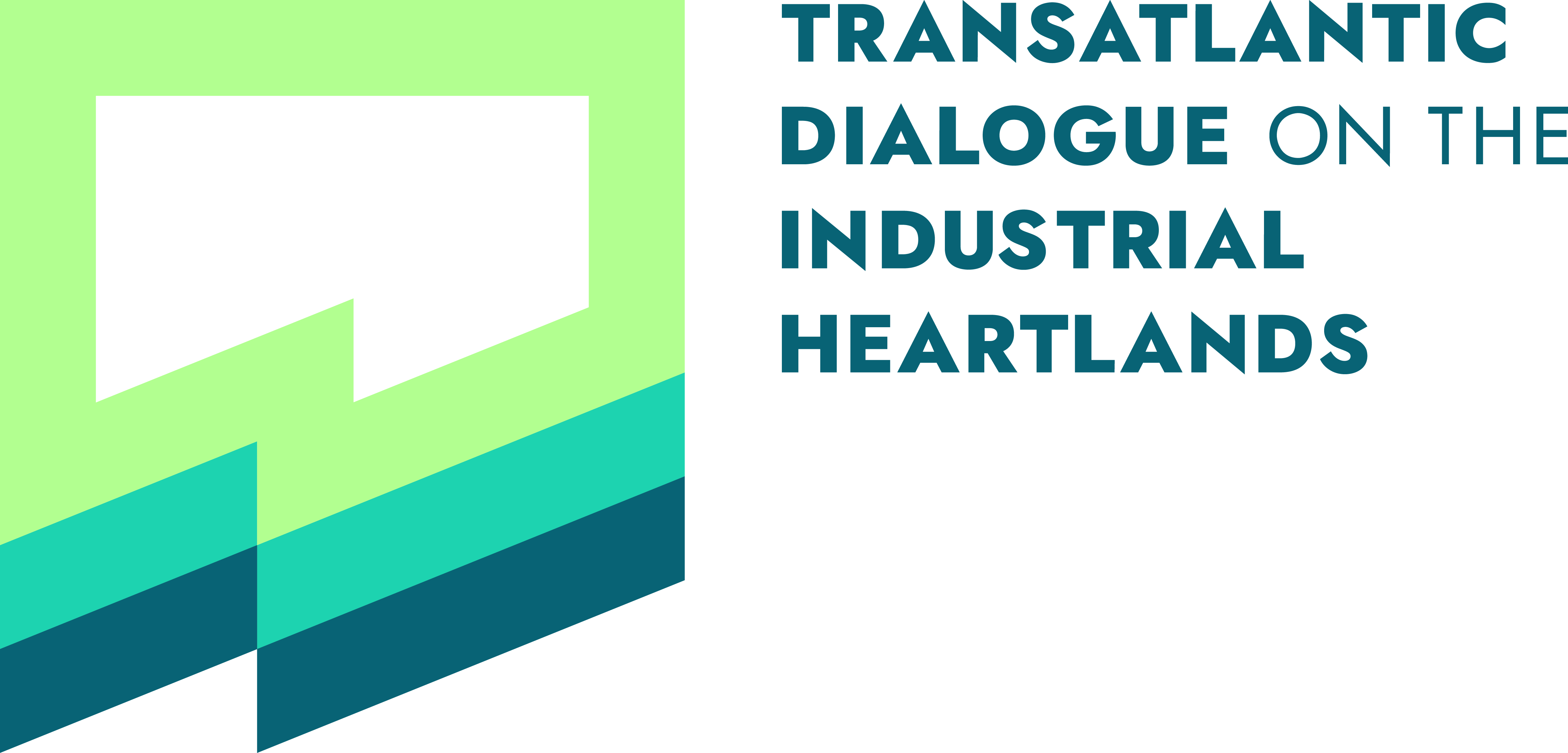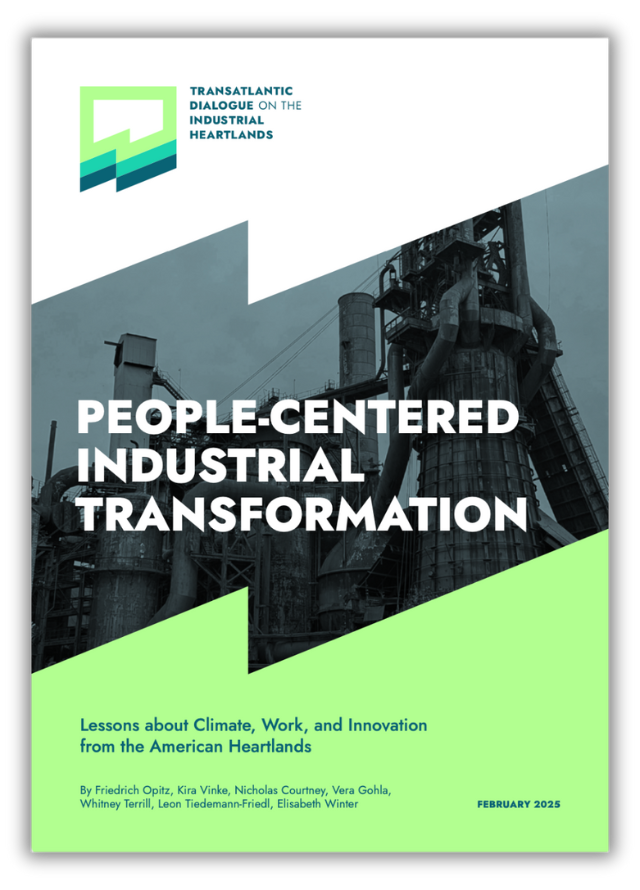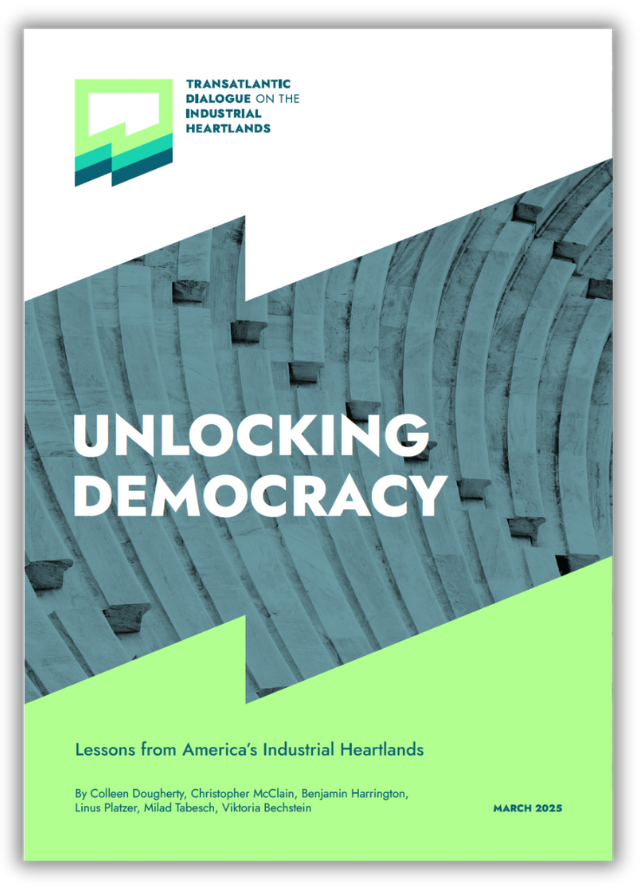Industrial Heartlands Policy Papers
Industrial Heartlands Policy Papers
In October 2024, just a few weeks before the U.S. presidential election, the project fellows traveled through the American industrial heartlands to get a first-hand impression of the prevailing political climate and to engage with numerous organizations and individuals who are deeply involved in shaping the future of these industrial heartlands.
The meetings in Pennsylvania, Ohio, and Michigan provided valuable insights into the challenges and opportunities in these regions, allowing the project fellows to summarize their findings in policy papers that provide actionable recommendations for policymakers and change makers in both the United States and Germany.
People-Centered Industrial Transformation: Lessons about Climate, Work, and Innovation from the American Heartlands
Industrial heartlands must leverage their existing infrastructure, skilled workforces, and industrial heritage to drive innovation and create well-paying jobs, particularly in energy and green technologies. Public–private partnerships, regional innovation clusters, and trade union support will be essential, as seen in successful initiatives like the Youngstown Business Incubator, which fosters entrepreneurship, workforce development, and technological innovation. Civic engagement models, such as Erie’s Jefferson Educational Society, can help bridge partisan divides, while philanthropic capital and sovereign wealth funds can mitigate economic risks by reinvesting in key industries and community revitalization. By focusing on these strategies, industrial heartlands can become leaders in sustainable development, ensuring short-term economic benefits, long-term prosperity, and democratic resilience. By learning from U.S. experiences, Germany can compare and navigate its own industrial transformation while further promoting regional collaboration.
Unlocking Democracy: Lessons from America’s Industrial Heartlands
The industrial heartlands are places poised to lead the way into a more democratic, sustainable future. At the core of this transformation lies the power to unlock local leadership, foster regional collaboration, and provide the necessary tools for economic and social renewal. Through targeted policy recommendations, we aim to break through the structural barriers that have held back progress, unlocking the potential of every community to shape its future. By focusing on investment in people, place, and democratic processes, we can create vibrant, engaged communities that are resilient in the face of change and capable of guiding their own destinies.




